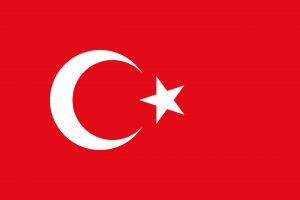Language/Turkish/Grammar/How-to-Use-Have
Hi Turkish learners! 😊
In this lesson, we will learn how to use the verb "have" in Turkish. We will look at the conjugation of the verb and how it is used in different contexts.
Conjugation
The verb "have" in Turkish is "var" (pronounced as /vaɾ/). It is an irregular verb and its conjugation is as follows:
| Person | Singular | Plural |
|---|---|---|
| I | varım | varız |
| You | varsın | varsınız |
| He/She/It | var | varlar |
Usage
The verb "have" is used in many different contexts in Turkish. Here are some examples:
- Person 1: Merhaba! Nasılsın? (Hello! How are you?)
- Person 2: İyiyim, sağol. Senin hakkında? (I'm fine, thank you. And you?)
In this example, the verb "have" is used in the phrase "Senin hakkında?" which means "And you?". The literal translation of this phrase is "About you?". The verb "have" is used here in the form of "varsın" which is the second person singular form of the verb.
- Person 1: Bugün ne yapıyorsun? (What are you doing today?)
- Person 2: Arkadaşlarımla bir araya varım. (I'm getting together with my friends.)
In this example, the verb "have" is used in the phrase "bir araya varım" which means "I'm getting together". The literal translation of this phrase is "I'm coming together". The verb "have" is used here in the form of "varım" which is the first person singular form of the verb.
Practice
Now let's practice using the verb "have" in Turkish. Here are some sentences for you to practice with:
- Benim evimde bir parti var. (There is a party at my house.)
- O, arkadaşlarıyla bir araya var. (He is getting together with his friends.)
- Bizim evimizde çok fazla insan var. (There are a lot of people at our house.)
- Onların evinde bir kutlama var. (There is a celebration at their house.)
➡ If you have any questions, please ask them in the comments section below.
➡ Feel free to edit this wiki page if you think it can be improved. 😎
Videos
Turkish Grammar: How to Say 'Before' in Turkish - YouTube

